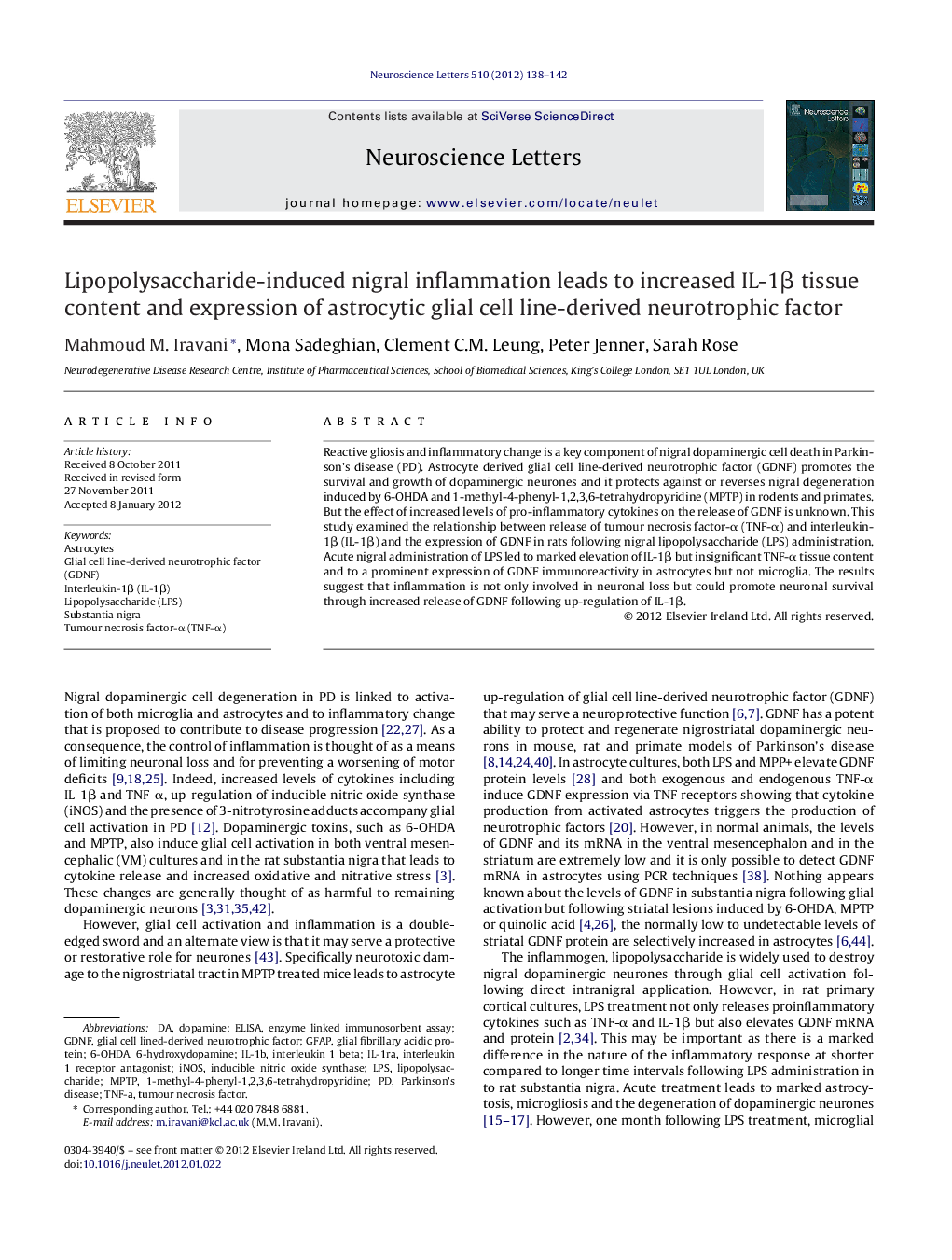| Article ID | Journal | Published Year | Pages | File Type |
|---|---|---|---|---|
| 4344746 | Neuroscience Letters | 2012 | 5 Pages |
Reactive gliosis and inflammatory change is a key component of nigral dopaminergic cell death in Parkinson's disease (PD). Astrocyte derived glial cell line-derived neurotrophic factor (GDNF) promotes the survival and growth of dopaminergic neurones and it protects against or reverses nigral degeneration induced by 6-OHDA and 1-methyl-4-phenyl-1,2,3,6-tetrahydropyridine (MPTP) in rodents and primates. But the effect of increased levels of pro-inflammatory cytokines on the release of GDNF is unknown. This study examined the relationship between release of tumour necrosis factor-α (TNF-α) and interleukin-1β (IL-1β) and the expression of GDNF in rats following nigral lipopolysaccharide (LPS) administration. Acute nigral administration of LPS led to marked elevation of IL-1β but insignificant TNF-α tissue content and to a prominent expression of GDNF immunoreactivity in astrocytes but not microglia. The results suggest that inflammation is not only involved in neuronal loss but could promote neuronal survival through increased release of GDNF following up-regulation of IL-1β.
► At 24 h following nigral LPS, IL-1β but TNF-α was insignificantly release. ► LPS treatment led to astrocytic but not microglial expression of GDNF. ► Increased expression and release of GDNF and IL-1β may promote neuronal survival.
